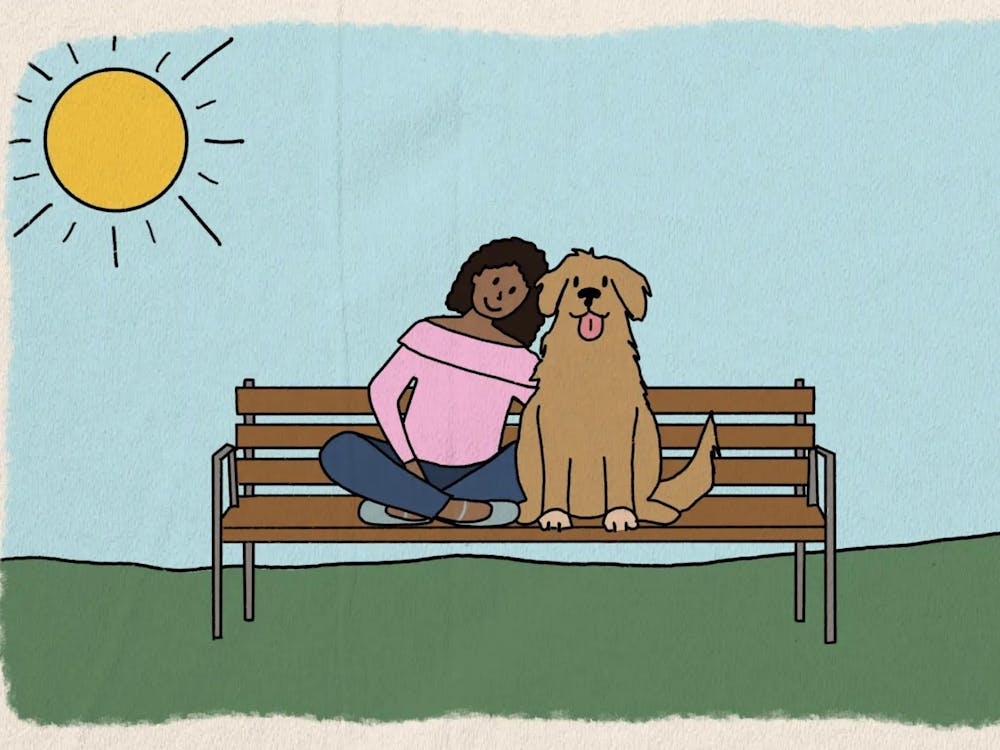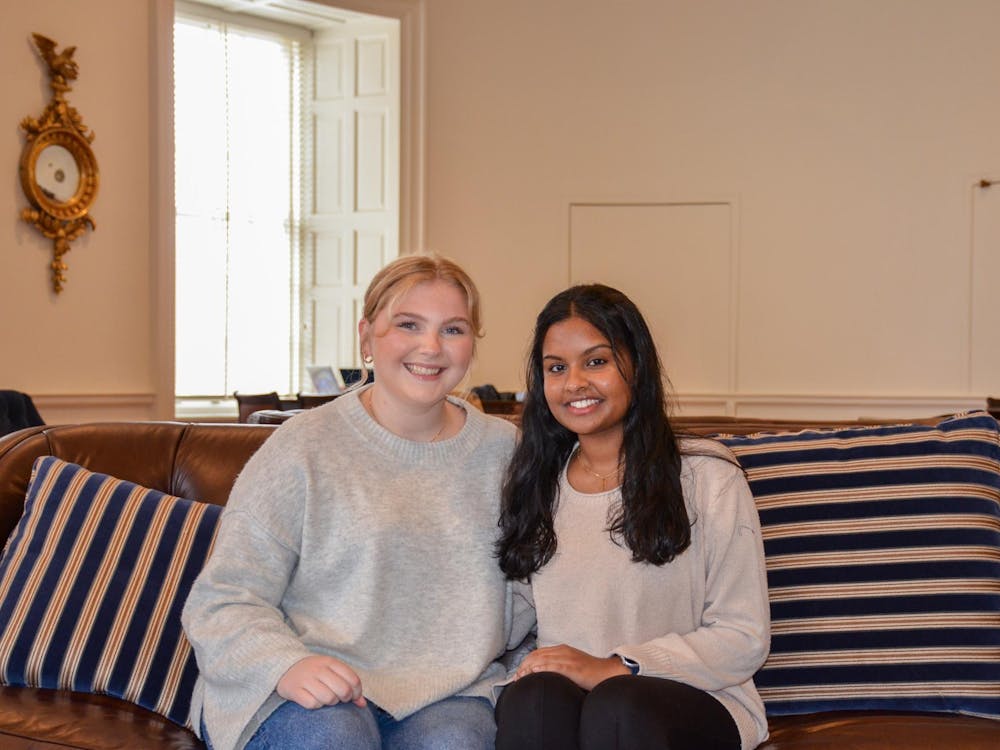Sick and tired of living your life pouring over your books for interminable hours in the library and then taking grueling exams? You may be wondering what it all means, and maybe more specifically, how this work applies to your future.
Conducting research is one way students are able to relate what they learn in the classroom to real life experiences. The University's undergraduate research program provides students with the chance to do just that.
Nicole Hurd, former director of the Center for Undergraduate Excellence, estimated that half of University students are pursuing some type of research and said she foresees additional growth in undergraduate research.
"As we get more funding, add additional research awards and as more students come here with more expectations that they'll have the opportunity to do research while they're here, [undergraduate research] will grow more and more" she said.
The University has seen substantial increases in student interest in undergraduate research over the past decade, according to Juliana Schroeder, chair of the Undergraduate Research Network,
Schroeder said the University founded the network in 2001 in order to "facilitate undergraduate research among students."
One of the four committees URN features as a resource for students is a workshop committee, which assists undergraduates in presenting their research projects.
"The attendance at these workshops has been going up in recent years, which means more students are getting more interested," Schroeder said.
Schroeder explained that University organizations are increasingly awarding undergraduate students with research grants, including Jefferson Society Grants, College of Arts & Sciences Grants and Harrison Grants.
One of the events promoting research on Grounds is Research Week, Schroeder said, which will begin April 23.
"There are events going on all week long that are promoting research on Grounds, including workshops [and] fireside chats," which promote conversations among professors and students, she said.
In addition, a URN symposium will feature presentations by 13 students throughout the final day of Research Week, enabling them to share their research with the community.
The presentation forum "is pretty competitive," Schroeder said. "It's a really good forum for students to ... basically [showcase] the work they've done."
Students seize research opportunities
Undergraduate research provides students with the chance to thoroughly explore subjects they are curious about.
Fourth-year College student Ross Baird described the opportunities his research on voter turnouts provided him.
"I did one project where I visited Italy, Austria and Croatia," he said. "Last summer ... we went to [the state of] Georgia and interviewed about 1,600 people to study voter behavior."
Schroeder also discussed her area of research, which won her a Harrison Grant.
"I work in the Jefferson psychometric lab, and I'm doing a study right now with chronic pain patients," she said. "I'm looking at how psychological aspects of patients affect the subjective pain experiences that they endure. My proposal was to look into how culture and society play into the experience of pain and how we can measure it more accurately according to this."
Baird said he originally carried a false impression of what undergraduate research entailed.
"When I first heard the term 'undergraduate research,' I thought it was students looking at test tubes, and that happens," he said. "[But] it allowed me to study things in depth that I would have never learned in the classroom."
Baird mentioned that another benefit research offers is the opportunity to work closely with faculty advisors.
In addition, he talked about how his research influenced his future ambitions.
"Because of my undergraduate research experience, I have been motivated to want to work on education policy for [the] government," he said.
Schroeder added that this experience has been rewarding for her as well.
"It's been really eye-opening and interesting," she said. "It's really encouraging and makes me feel that this academia is a field I could really contribute too."
Advancing research at the University
While opportunities are abundant, it does take initiative for undergraduates to get involved in research, Baird said.
"There are so many different research grants," he said. "If you can find one that is a good fit for you, it's the best deal the University has going."
Baird encouraged all undergraduates to pursue research.
"[There are a] lot more opportunities out there than the average student might think ... but you do have to work a little bit," he said."Just the effort of applying really pays off. It really [forces] you to put your academic career on paper."
Once students have completed their research, they have a number of options for sharing it. One option includes publication in the "Oculus... the University of Virginia's journal of undergraduate research," according to the URN Web site.
Research symposiums offer another option for students interested in sharing their research with other.
While URN's Research Week consists of University student, some symposiums encompass larger areas, with several institutions represented.
George T. Barthalmus, director of undergraduate research at North Carolina State University, said he plans to bring N.C. State students to Charlottesville to participate in the Atlantic Coast Conference symposium on undergraduate research and creativity, to be held April 12-14. Barthalmus began the symposium two years ago in North Carolina. Currently, the conference is open to students from all 12 schools in the ACC.
Barthalmus said he hoped the idea of the symposium would spread to school outside the ACC.
"By doing that we could have a national competition ... we could bring all students together from [all over]."





